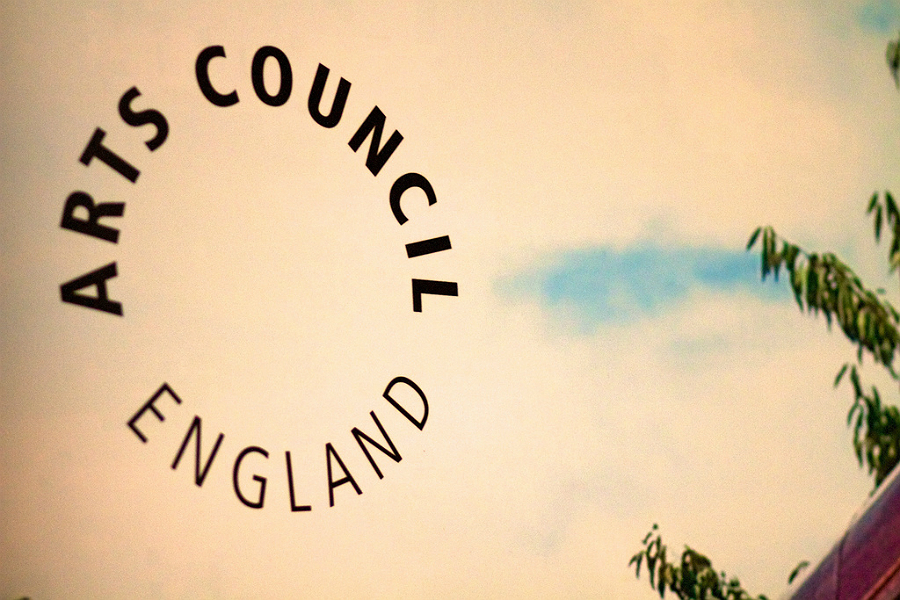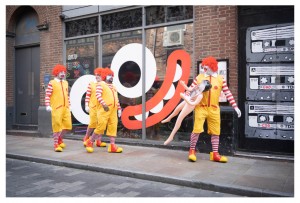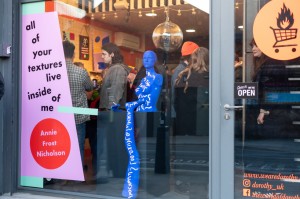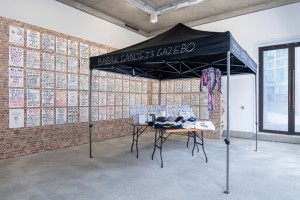Arts Council England:
Money And How To Get It

Committed to ‘achieving great art for everyone’, Arts Council England’s Grants for the Arts scheme offers respite in these chastened times…
With nationwide cuts affecting all levels of institution operating within the arts, from the likes of National Museums Liverpool and the Biennial, through to artist-led indie spaces such as The Royal Standard, it’s no exaggeration to suggest that the current economic climate has all and sundry tightening their belts and second-guessing levels of expectation.
But for some, and rather counter-intuitively, now is not the time to despair. Indeed, it is heartening in these most chastening of times to know there is somewhere to turn for that bit of extra money which could mean the difference between plateauing and moving to the next phase. Furthermore, this piece of good news comes from a source who knows. Speaking at the Liverpool Sound City-hosted talk, Arts Council England: Money And How To Get It, Arts Council North West’s Music Manager, Chris Bye, was on hand to provide significant encouragement.
Opening a number of eyes in the process, many in attendance hearing about ACE – whose motto reads: Championing, developing and investing in the arts and culture in England – in detail for the first time, will now no doubt have a considerably greater appreciation of what it is for a hungry dog to be thrown a bone.
In short, there is money available, in many cases, for those in greatest need of it. But how does this work? Surely there is some catch, no? Funded by the National Lottery, Arts Council England’s Grants for the arts scheme is “for activities carried out over a set period and which engage people in England in arts activities, and help artists and arts organisations in England carry out their work”.

If that description applies to what you do, whether you knew it or not, you’re probably already well placed to gain access to this funding which, says Bye, “is quite healthy”. He continued, “Ironically, there’s never been more money available.” In fact, the organisation estimates that between 2010 and 2015, around £1.1 billion will be invested in this manner. If there is a catch at all, it is only in the sense that you must prove your eligibility via application form; they aren’t just handing money out to anybody here, you must be able to demonstrate why your venture is worthy of their investment.
So, what specifically are ACE looking for in a bid? And just as pertinently, what are the chances of your funding bid proving successful? Any bid, and whether it will be accepted or not, essentially boils down to three things, says Bye. It must look to yield:
- “Benefits to the artist”: what are YOU getting out of it?
- “Artist development”: what valuable or needed skills and experience will your project provide?
- And “benefit to the public”: who will be attending or seeing your project?
So the B word is key and must be demonstrable. What about the percentage of successful applicants? Bye said: “there’s a 33% success rate – there is a lot of money but there’s a lot of people going for it.”
It goes without saying that in terms of number of applications, this is a competitive process, but that said, working in any field (never mind within the many-backed beast that is ‘the arts’), 33% represents a more than healthy ratio of opportunity to access funds which, ultimately, could significantly enhance the outlook and expectations for any given successful individual or institution. (Before you rush to the ACE website though, bear in mind that a series of changes to the application process affecting small grants have recently been announced and come into effect as of 1st July).
At a time when those in power shortsightedly look to the arts first for easy-to-make-cuts, it’s reassuring to know that there remain avenues down which you can pursue help and support in achieving what to many, would otherwise have looked impossible.
For more information visit the Arts Council England website





